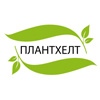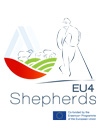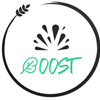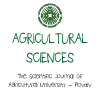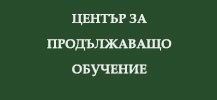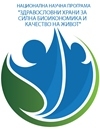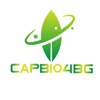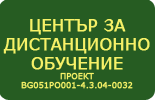Agricultural marketing
|
Course title: |
Agricultural marketing |
|
|
Course code: |
IFAMA |
|
|
ECTS: |
5 |
|
|
In-class hours |
Lectures: |
30 |
|
Laboratory work/Tutorials: |
30 |
|
|
Self-preparation hours |
Practical training: |
- |
|
Other: |
75 |
|
|
Total hours: |
125 |
|
|
Language: |
English |
|
|
Study cycle: |
BSc, Master |
|
|
Semester: |
Winter, summer |
|
|
Faculty: |
Faculty of Economics |
|
|
Name of the lecturer(s): |
Prof. Violeta Dirimanova, PhD - Lecturer Assoc. Prof. Teodora Stoeva, PhD – Tutorial seminars |
|
|
Mode of delivery: |
Face-to-face, distance learning or a combination of both |
|
|
Prerequisites: |
Basic of management and marketing |
|
|
Learning outcomes of the course unit: |
The objective of the Agricultural Marketing course is to provide students with a theoretical and empirical basis for valuating agricultural marketing organization and actors for market performance and public policy decision, and to enable them develop and use the tools of economic theory to analyze issues related to the marketing of agricultural commodities. After completing this course, the students should obtain knowledge regarding: (a) to apply economic theory to problems of agricultural marketing; (b) to design strategies for effective market performance; (c) to use marketing concepts for analyzing market structure and performance in agriculture and formulate effective agricultural marketing policy; (d) to apply theoretical models of imperfect market structures to inform public policy and (e) to understand price discovery mechanisms under different market structures. |
|
|
Course contents: |
LECTURES: 1. Market and Marketing – meaning, definitions, components of market, market structure, meaning, components, market conduct and market performance; 2. Agricultural Marketing – meaning, definition, scope and importance of agricultural marketing in economic development; 3. Marketing environment – internal factors on micro level and external factors on macro level; 4. Classification of markets on the basis of location, volume of transaction, nature of transaction, number of commodities, degree of competition, stage of marketing and extent of public intervention; 5. Marketing functions –meaning, accumulating, classifying and standardization and also including transportation, storage, processing, packing, distribution, buying and selling; 6. Market integration- types of market integration horizontal, vertical and conglomeration-making efficiency; 7. Marketing cost – margins, price spreads, factors affecting the costs of marketing; 8. Cooperative marketing- meaning, structure, functions of cooperative marketing societies and types of state trading; 9. Target market – segmentation, approaches to develop a market policy and criteria for market segmentation; 10. Market strategy – nature, stage and type of development; 11. Contents of concept product – classification of products and the product life cycle, natural and types of innovation for the new products; 12. Characteristics of agricultural product prices - agricultural price stabilization and need for agricultural price policy; 13. Risks on marketing - types of risks, measures to minimize risks- speculation, hedging and future trading and price forecasting; 14. International trade - difference between international and inter-regional trade- free trade compared to protection; 15. Market research – organization of marketing research. TUTORIALS: 1. Natural, methods and task of marketing and explaining the concept of the marketing with specific cases; 2. The role and place of marketing in the organization – case studies; 3. Type of marketing – part one: based on different attributes (natural od products, changes in consumer demand); 4. Type of marketing – part two: based on different attributes (entity which it operates, territorial reach and the function it performing marketing); 5. Marketing functions – examples for transportation, storage, processing, packing, distribution, buying and selling; 6. Market segmentation – explaining the “network marketing” on the base of the specific examples; 7. Product lifecycle of a product and innovation for the new products; 8. Agricultural price stabilization and need for agricultural price policy; 9. Case studies related to the risks on marketing for instance, speculation, hedging, future trading and price forecasting; 10. Marketing research – identifying a practical object and developing a specific plan; 11. Marketing research – introducing methodology for a practical object; 12. Marketing analyzes – marketing conditions and competitions, analysis of critical point and analysis of the contribution; 13. The role of the trade organizations: The General Agreement on Trade and Tariffs(GATT) and World Trade Organization (WTO) |
|
|
Recommended or required reading: |
® Kotler, Philip, (1997), Marketing management – analysis, planning, implementation and control, Prentice Hall, International Editions. ® Rhodes, V. James (1993), The Agricultural Marketing System, Publishers: Gorsuch Scarisbrick, Scottsdale, Arizona; ® Maxwell, Albert (2020). Agricultural Marketing, Publisher : CALLISTO Norwood, Bailey and Lusk, Jayson (2008). Agricultural Marketing and Price Analysis, Pearson/Prentice Hall - Technology & Engineering |
|
|
Planned learning activities and teaching methods: |
The main part of the material in Agricultural Marketing is taught through lectures. The lectures are presented using Microsoft PowerPoint and aimed to extend students’ knowledge in agricultural marketing. The conversations and discussions are used in order to achieve additional knowledge and skills. During the tutorials, the students receive guidance and advices to develop assignment s to specific topics. Finally, the students individually will prepare an assignment and presented to all. |
|
|
Assessment methods and criteria: |
Assignment and/or written exam |
|
 - Events on the occasion of the 80th anniversary of AU
- Events on the occasion of the 80th anniversary of AU
